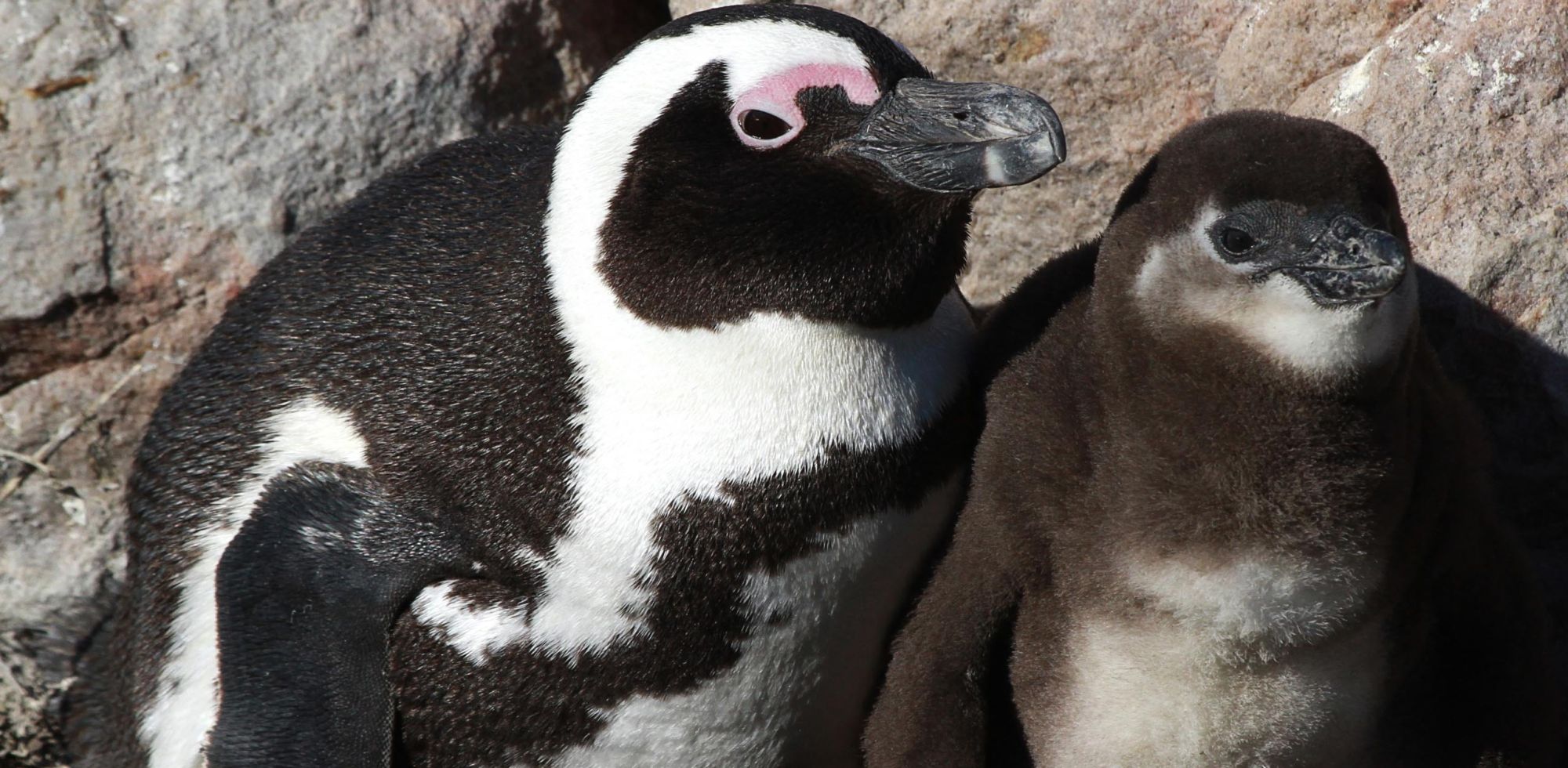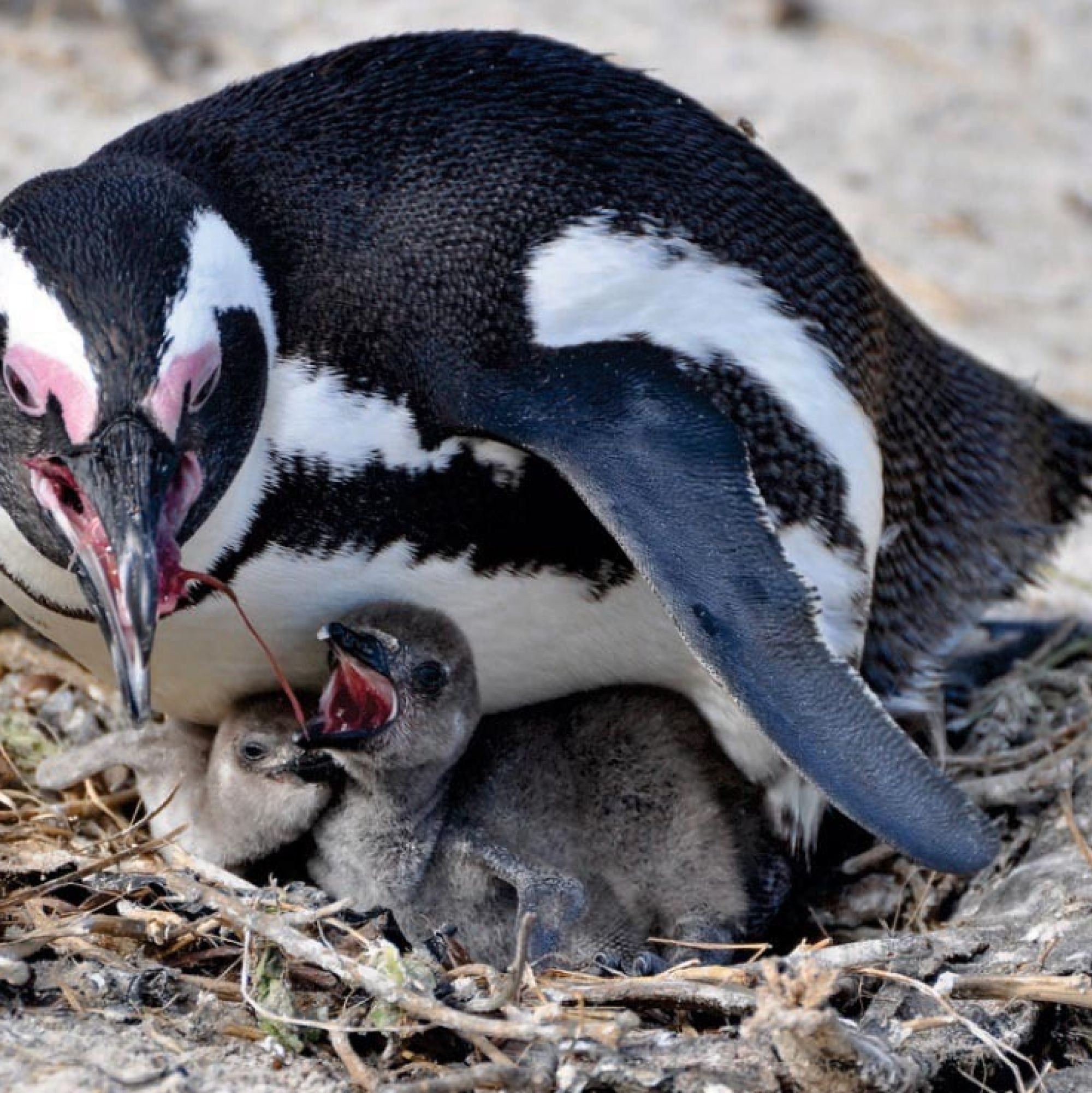
Five little known facts about the African penguin
Stony Point Nature Reserve In honour of World Penguin Day, brush up on your African Penguin knowledge with our quick article that lists five facts you may not know about everyone’s favourite flightless bird.
They were once considered ‘fish’
When Bartholomew Diaz and his crew first landed in southern Africa they became the first Europeans to see African Penguins. The Portuguese settlers were devout Catholics, and thus not allowed to eat meat on Fridays.
They were, however, allowed to eat fish, and made the decision to classify the flightless penguin as a fish, due to its love of swimming. This meant they had a ‘loophole’ allowing them to catch and consume penguin meat on a Friday without transgressing their religious beliefs.
They’re really fast swimmers
When a penguin dives underwater to find food, its flippers can propel them at speeds of up to 8km/h. To put that in context, the fastest human swimmer ever managed a speed of 8.46km/h, but that was only over 50m. Penguins also do something called porpoising. This involves swimming really fast then leaping out of the water while taking a breath. When doing this, they can swim up to 19km/h.
Add to this the fact that they can hold their breaths for up to two-and-a-half minutes and you can see why penguins are considered to be so powerful in the water (and why the Portuguese settlers had no problem classifying them as fish!)
They’re no longer ‘Jackasses’
African Penguins used to be known as ‘Jackass’ Penguins due to their distinctive donkey-like bray. However, three other species of penguin have similar calls, and to avoid confusion this species, which is only found on the continent, is now officially known as the African Penguin. It’s also a little more accurate description of a wonderful creature that is far more than its quirky vocal tones.
They can double, and then halve, their weight in a matter of weeks
As part of the annual moulting process, African penguins experience drastic weight fluctuations. As preparation for moulting season, when they are unable to enter the water, penguins can double their weight, gorging on fish and storing up fat for a long period where they do not eat.
They live off this fat for approximately three weeks, as they lose their old faded feathers and gain the smart new plumage. This causes their weight to drop as dramatically as it increased, and during this period the penguins are also visibly grumpy, as you would be if you were forced to starve for three weeks!
Their numbers have decreased drastically
Sadly, the African Penguin has been a species in decline since the industrial age began. Overfishing, habitat destruction, coastal development and a number of other human influences mean that a population that used to boast over 1 million pairs is now hovering at around 26 000 pairs. The good news, though, is that a number of populations are now thriving, thanks to conservation efforts, including the coastal colony at Stony Point in Betty’s Bay.
Run by CapeNature, Stony Point has a thriving population of African penguins and a boardwalk that winds through the colony, allowing visitors the opportunity to watch the penguins go about their daily lives from a safe distance.
Related News
How can I assist you today?
How can I assist you today?





